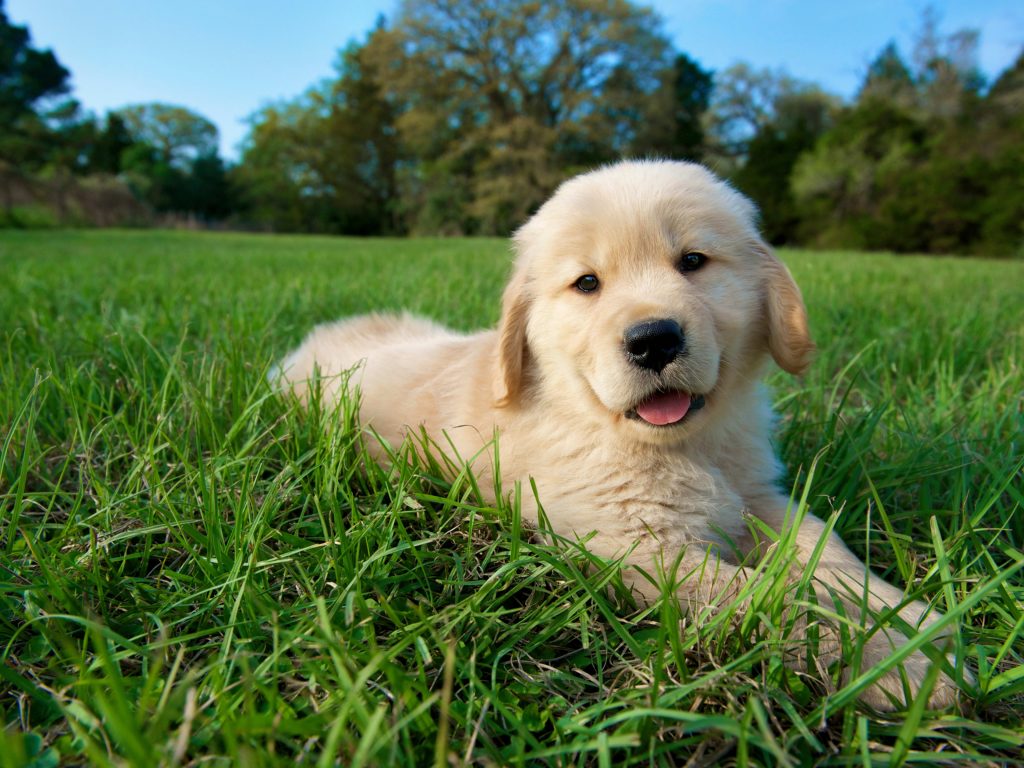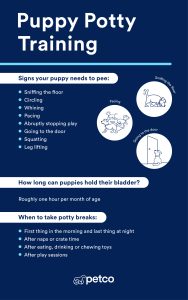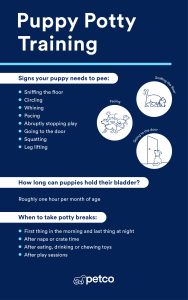Bringing a golden retriever puppy into your home is an exciting adventure filled with joy and laughter. But let’s be honest—puppies can also be a handful.
You want to give your new furry friend the best start, and that means knowing the right tips from the very beginning. Imagine having simple, effective advice that helps you avoid common mistakes, keeps your puppy happy and healthy, and strengthens the bond between you two.
Keep reading, because these golden retriever puppy tips will make your life easier and your puppy’s first months truly amazing.

Credit: www.goldenretrieverlife.com
Choosing The Right Puppy
Bringing a Golden Retriever puppy home is exciting. Picking the right puppy starts with careful thought and research.
This guide helps you find a healthy puppy from a good breeder and get your home ready for the new arrival.
Selecting A Reputable Breeder
Choose a breeder who cares for the puppies and their parents. A good breeder will answer your questions and show you the puppy’s living area.
- Visit the breeder’s location in person
- Ask about health checks and vaccinations
- Meet the puppy’s parents if possible
- Check for clean and safe conditions
- Review any health guarantees or return policies
Identifying Healthy Puppies
Healthy puppies are active and curious. Look for clear eyes and clean ears. Their coat should be shiny and soft.
| Health Sign | What to Look For |
| Eyes | Clear and bright, no redness |
| Ears | Clean, no bad smell |
| Coat | Shiny, without bald patches |
| Behavior | Playful, alert, and friendly |
| Body | Well-fed, no swelling or sores |
Preparing Your Home
Set up a safe and comfortable space for your puppy. Prepare food, water, and a cozy bed. Remove anything that could harm the puppy.
- Secure electrical cords
- Remove small objects from the floor
- Store cleaning supplies out of reach
- Block off unsafe areas
- Provide chew toys and a comfortable bed

Credit: tayloreddogs.com
Nutrition And Feeding
Feeding your Golden Retriever puppy the right food is very important. Good nutrition helps them grow strong and healthy.
Puppies need balanced meals with proteins, fats, and vitamins. This keeps their energy high and supports their body development.
Best Puppy Food Options
Choose puppy food made for large breeds like Golden Retrievers. These foods have the right nutrients for their growth.
Look for foods with real meat as the first ingredient. Avoid foods with too many fillers or artificial additives.
- Dry kibble designed for large breed puppies
- Wet food with high protein content
- Grain-free options if your puppy has allergies
- Foods rich in DHA for brain development
Feeding Schedule
Feed your Golden Retriever puppy three to four times daily. This helps keep their energy steady and avoids stomach issues.
As your puppy grows, reduce feedings to twice a day. Keep the feeding times regular and consistent every day.
- Up to 3 months: 4 meals a day
- 3 to 6 months: 3 meals a day
- 6 months and older: 2 meals a day
- Always provide fresh water
Foods To Avoid
Some foods are harmful to Golden Retriever puppies. Avoid feeding them these to keep them safe and healthy.
Chocolate, grapes, onions, and garlic can cause illness or poisoning. Also, avoid giving cooked bones or fatty scraps.
- Chocolate and caffeine
- Grapes and raisins
- Onions and garlic
- Cooked bones
- Fatty or salty human foods
- Raw dough with yeast
Training Essentials
Training your Golden Retriever puppy is key for a happy home. Early lessons build good habits that last. Patience and consistency help your puppy learn fast.
Use clear signals and rewards to teach your puppy. Short training sessions keep their attention strong. Let’s look at the main tips for training success.
Basic Commands
Start with simple commands like sit, stay, and come. These build control and safety. Use treats and praise to encourage your puppy.
- Say the command clearly and show the action.
- Reward your puppy immediately when they obey.
- Repeat often in short sessions.
- Keep training fun and positive.
- Practice in different places to generalize skills.
Housebreaking Tips
Housebreaking teaches your puppy where to go outside. A good routine helps prevent accidents indoors. Watch your puppy for signs they need to go out.
| Time | Action |
| First thing in the morning | Take puppy outside |
| After meals | Go outside to potty |
| After playtime | Take puppy out again |
| Before bedtime | Final potty break |
Socialization Strategies
Socializing your puppy builds confidence and good behavior. Introduce your puppy to new people, dogs, and places carefully. Stay calm and watch their reactions.
Try these socialization steps:
- Invite friends over for gentle visits.
- Take short trips to parks and pet-friendly spots.
- Attend puppy classes or playgroups.
- Expose your puppy to different sounds and sights.
Exercise And Play
Golden Retriever puppies need regular exercise to stay healthy and happy. Playtime helps them burn energy and learn new skills.
Giving your puppy the right kind of play and exercise supports their growth and behavior. It also builds a strong bond between you.
Age-appropriate Activities
Puppies have different exercise needs as they grow. Young puppies need gentle play to protect their developing bones.
Short walks and soft fetch games work well for puppies under six months. Avoid hard running or jumping at this stage.
- Under 3 months: gentle play and short indoor sessions
- 3 to 6 months: short walks and basic fetch
- 6 months and older: longer walks and more active play
Indoor And Outdoor Play
Indoor play is great for rainy days and helps keep your puppy active. Use soft toys and safe spaces for play.
Outdoor play gives your puppy fresh air and room to run. Always watch your puppy closely and use a leash when needed.
- Indoor games: tug-of-war, hide and seek, and gentle fetch
- Outdoor games: fetch, running, and exploring new places
- Use puppy-safe toys that are soft and easy to chew
Mental Stimulation
Exercise is not just about the body. Mental play helps your puppy learn and stay calm.
Puzzle toys and basic training exercises keep your puppy’s brain active. This reduces boredom and prevents bad behavior.
- Use treat-dispensing toys to challenge your puppy
- Practice simple commands like sit, stay, and come
- Introduce new smells and sounds during walks
Health Care
Taking care of your Golden Retriever puppy’s health is very important. Good health care helps your puppy grow strong and happy.
Regular care can prevent many diseases. It also helps you spot any problems early on.
Vaccination Schedule
Vaccines protect your puppy from serious illnesses. Follow the right schedule to keep your puppy safe.
Start vaccines at six to eight weeks old. Your vet will give shots every few weeks until your puppy is about four months old.
- 6-8 weeks: First set of vaccines
- 10-12 weeks: Second set of vaccines
- 14-16 weeks: Final set of puppy vaccines
- 12-16 months: Booster shots
Common Health Issues
Golden Retriever puppies can face some health problems. Knowing these helps you watch for signs early.
Some common health issues include hip dysplasia, ear infections, and allergies. Early care reduces their impact.
- Hip Dysplasia: Joint problem causing pain
- Ear Infections: Caused by moisture or dirt
- Allergies: Skin irritation or itching
- Heart Problems: Watch for coughing or tiredness
Regular Vet Visits
Regular vet visits keep your puppy healthy. The vet checks growth and prevents diseases.
Visit the vet at least once every six months. Talk about diet, behavior, and any health concerns.
- Check weight and growth
- Update vaccinations
- Discuss flea and tick prevention
- Ask about dental care
Grooming Needs
Grooming is a crucial aspect of caring for your Golden Retriever puppy. Regular grooming helps prevent health issues, strengthens the bond between you and your puppy, and makes them look their best.
Brushing And Bathing
Golden Retriever puppies require regular brushing to prevent matting and tangling of their fur. Use a soft-bristled brush or a slicker brush to gently remove loose hair and distribute skin oils.
Bath your Golden Retriever puppy every 2-3 weeks, or as needed. Use a mild dog shampoo and warm water, and be sure to rinse thoroughly to prevent skin irritation.
- Use a brush specifically designed for Golden Retrievers to prevent matting
- Brush your puppy’s fur in the direction of growth to prevent breakage
- Be gentle when bathing your puppy to prevent skin irritation
Nail Trimming
Golden Retriever puppies need their nails trimmed regularly to prevent overgrowth. Use a pair of dog nail clippers and trim the nails straight across, taking care not to cut the quick.
Trim your puppy’s nails every 4-6 weeks, or as needed. If you’re unsure how to trim your puppy’s nails, consult with a veterinarian or a professional dog groomer.
Ear And Dental Care
Golden Retriever puppies require regular ear cleaning to prevent infections. Use a dog ear cleaner and gently wipe away dirt and wax from the outer ear.
Brush your puppy’s teeth daily to prevent tartar buildup and promote good oral health. Use a dog toothbrush and toothpaste, and pay special attention to the back molars.
Ear Cleaning Schedule:
- Weekly ear cleaning for puppies under 6 months old
- Every 2-3 weeks for puppies over 6 months old
Creating A Safe Environment
Bringing a golden retriever puppy home is exciting. Creating a safe space helps your puppy explore and grow. It keeps them away from harm and your belongings safe.
This guide covers key areas to focus on. Puppy-proofing your home, choosing safe toys, and managing separation anxiety are essential steps.
Puppy-proofing Your Home
Golden retriever puppies are curious and love to chew. Remove or secure items that can hurt them. Keep cleaning supplies, cords, and small objects out of reach.
- Block off stairs and unsafe rooms
- Cover electrical outlets and hide wires
- Store trash cans in cabinets or behind doors
- Remove toxic plants and chemicals
- Keep shoes and children’s toys off the floor
Safe Toys And Chews
Pick toys that are strong and non-toxic. Avoid small parts that can be swallowed. Chew toys help puppies relieve teething pain and stay busy.
| Toy Type | Material | Safety Tip |
| Chew toy | Rubber or nylon | Check for cracks regularly |
| Soft toy | Durable fabric | Supervise playtime |
| Interactive toy | Plastic or rubber | Choose non-toxic materials |
| Fetch ball | Rubber or foam | Use size suitable for puppy’s mouth |
Managing Separation Anxiety
Golden retriever puppies often feel nervous when left alone. Gradual training helps reduce their stress. Create a calm space with familiar scents and sounds.
- Start with short separation times
- Use a crate or playpen as a safe area
- Provide toys and chew items to distract
- Speak softly and stay calm when leaving
- Reward calm behavior on return

Credit: www.yahoo.com
Frequently Asked Questions
How Often Should I Feed My Golden Retriever Puppy?
Feed your Golden Retriever puppy three to four times daily. Use high-quality puppy food with balanced nutrients. Avoid overfeeding to prevent obesity. Adjust portions as your puppy grows and follow your vet’s advice for best results.
When Should I Start Training My Golden Retriever Puppy?
Begin training your Golden Retriever puppy as early as eight weeks old. Early training helps build good behavior and social skills. Use positive reinforcement techniques and keep sessions short and consistent for better learning outcomes.
How Much Exercise Does A Golden Retriever Puppy Need?
Golden Retriever puppies need moderate exercise, about 20 to 30 minutes daily. Avoid intense exercise to protect their developing joints. Short walks and playtime help burn energy and promote healthy growth.
What Vaccinations Does A Golden Retriever Puppy Require?
Golden Retriever puppies need core vaccines like distemper, parvovirus, and rabies. Follow your vet’s vaccination schedule starting at six to eight weeks old. Timely vaccinations prevent common puppy illnesses and ensure long-term health.
Conclusion
Caring for a Golden Retriever puppy takes time and patience. Puppies need love, training, and good food every day. Playing and walking help them stay healthy and happy. Watch their behavior closely to understand their needs. Consistent routines make puppies feel safe and calm.
Enjoy the fun moments as your puppy grows. A happy puppy becomes a loyal, loving dog. Keep learning and adapting as your puppy changes. Your care shapes a strong, friendly companion for life.

Emily Barker is the founder of ChillDogLife.com, a space dedicated to helping pup parents discover the best dog products, lifestyle tips, and cozy ideas for happier homes.
A lifelong dog lover, Emily combines her passion for pets with a knack for research to share trusted recommendations on everything from toys and furniture to health and everyday care.
Her goal is simple: to make life easier, stylish, and more joyful for dogs and the people who love them.







